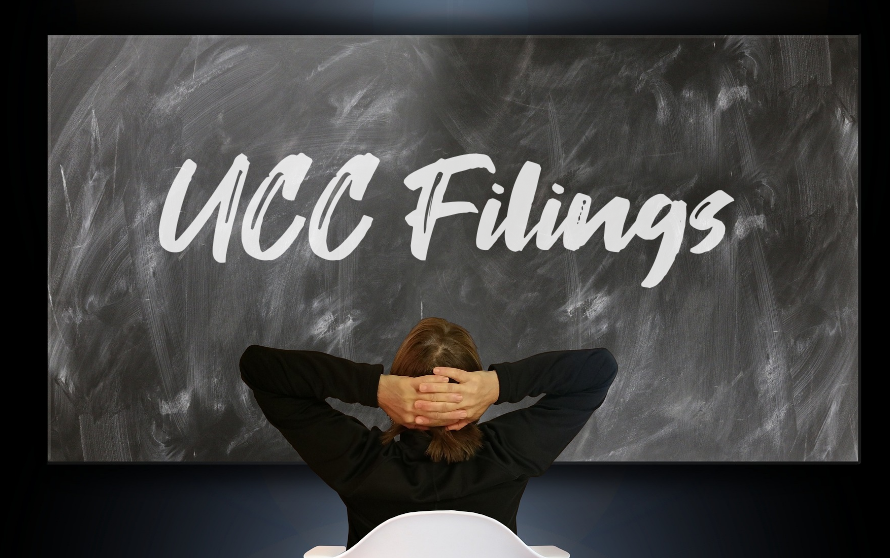
A Review of Key Words and Common Terms Related to UCC Filings
In the spirit of “back-to-school,” today’s post is a UCC Article 9 vocabulary lesson. Break out your pencils and notebooks, let’s get started!
What is a Financing Statement?
Under Article 9 of the Uniform Commercial Code (UCC), a Financing Statement is a statement identifying a security interest in specific collateral. The Financing Statement is filed to provide notice to other creditors of a security interest.
Security Agreements, Collateral, Ship Date & Assignment
- Security Agreement: An authenticated agreement that creates or provides a security interest. Agreement must include the date, debtor’s legal name, address, authentication, granting clause, collateral description and default terms.
- Collateral: Assets or property used to secure a loan or other credit. Collateral becomes subject to seizure on default.
- Equipment Ship Date: To achieve priority status with respect to a Purchase Money Security Interest in collateral deemed “equipment”. A Financing Statement must be filed before, or within 20 days after, the debtor receives delivery of the collateral. The security interest will take priority over the rights of a buyer, lessee, or lien creditor.
- Assignment: An initial UCC-1 Financing Statement may reflect an assignment of all the secured party’s power to the Financing Statement by providing the name and mailing address of the assignee as the name and address of the secured party. A secured party may also assign of record all or part of its power to an already recorded filing by filing an Assignment Statement which provides the name and mailing address of the assignee (9-514).
UCC Forms
- UCC-1 Initial Financing Statement: Original recorded document that identifies the initial filing number, date, time, debtor, secured party and collateral description.
- UCC-3:
- Continuation: A continuation statement continues the effectiveness of a filing for a period of 5 years. It may be filed only within the six months immediately before lapse.
- Change Statement: A statement that makes a change to the original UCC-1 Financing Statement through either an amendment, continuation, assignment or termination.
- Termination: The filing of a termination statement ceases the effectiveness of the original UCC-1 Financing Statement to which it identifies (9-513).
- UCC-11: An informational search to determine whether there are other secured parties, whether specific collateral is already secured by a UCC and to determine a creditor’s priority
What are the Types of Security Interests?
Agricultural Lien: Agricultural lien means an interest, other than a security interest, in farm products: (A) which secures payment or performance of an obligation for; (B) which is created by statute in favor of a person; (C) whose effectiveness does not depend on the person’s possession of the personal property.
Bailment: A “true” consignment is a Bailment (for the purpose of the sale). *To meet the requirements of Article 9 – record the UCC-1 Financing Statement (bailor/bailee) and send notification letters to the prior secured creditors.
Blanket: A security interest in all assets of the debtor. *Record the UCC-1 Financing Statement – search & notification letters are not required.
Consignment – 9-102(20): “Consignment” means a transaction, regardless of its form, in which a person delivers goods to a merchant for the purpose of sale. If a transaction is a “sale or return” it is NOT a consignment because the buyer becomes the owner of the goods and the seller may obtain an enforceable security interest in the goods. *To meet the requirements of Article 9, a consignment is treated the same as a Purchase Money Security Interest in Inventory – record the UCC-1 Financing Statement (consignor/consignee) and send notification letters to the prior secured creditors.
Fixture Filing/Real Estate Filing – 9-102(40): “Fixture Filing” means the filing of a financing statement covering goods that are or are to become fixtures. (9-102(41)) “Fixtures” means goods that have become so related to particular real property that an interest in them arises under real property law. * To meet requirements of Article 9 – Record the UCC-1 Financing Statement with a legal description of the property in the COUNTY where mortgages are recorded (9-501(a)(1)(B)).
Lease: A true lease is automatically perfected under Article 2A. A filing is not needed. However, occasionally doubts arise concerning whether a transaction creates a relationship to which Article 9 or its filing provisions apply. For example, questions may arise whether a “lease” of equipment in fact creates a security interest. *In this case a UCC-1 Financing Statement will be recorded listing the equipment – in case the “lease” is construed to be a security interest.
Notification Filing: UCC-1 Financing Statement that is recorded to “notify” secured creditors of a business transaction regarding certain collateral. This does not create a security interest that secures an obligation. *Record the UCC-1 Financing Statement – search and notification letters are usually sent to alert prior secured creditors.
Promissory Note: A signed document containing an unconditional promise to pay specified funds to another party by a specified date.
Purchase Money Security Interest in Equipment (aka PMSI): Securing collateral that is defined as equipment (9-102(33)) – “Equipment” means goods other than inventory, farm products, or consumer goods. The “equipment” is used in the course of the debtor’s business – it is not stocked. *To achieve priority in equipment the UCC-1 Financing Statement must be recorded within 20 days of debtor receipt.
Purchase Money Security Interest in Inventory (aka PMSI): Securing collateral that is defined as inventory (9-102(48)) – “Inventory” means goods, other than farm products, which: (A) are leased by a person as lessor; (B) are held by a person for sale or lease or to be furnished under a contract of service; (C) are furnished by a person under a contract of service; or (D) consist of raw materials, work in process, or materials used or consumed in a business. *To achieve priority in the inventory the UCC-1 Financing Statement must be recorded and notification letters (authenticated) sent before shipping.
Tooling: A supplier has possession of tooling or other equipment that is owned by the buyer. UCC-1 Financing Statement is recorded to “notify” secured creditors of a business transaction regarding certain collateral. This does not create a security interest that secures an obligation. *Record the UCC-1 Financing Statement – search and notification letters are usually sent to alert prior secured creditors.
Warehousing: UCC-1 Financing Statement that is recorded to “notify” secured creditors of a business transaction regarding certain collateral. This does not create a security interest that secures an obligation. *Record the UCC-1 Financing Statement – search and notification letters are usually sent to alert prior secured creditors.
Pop Quiz
Just kidding! No pop quizzes today. However, if you have questions, please don’t hesitate to contact us!















